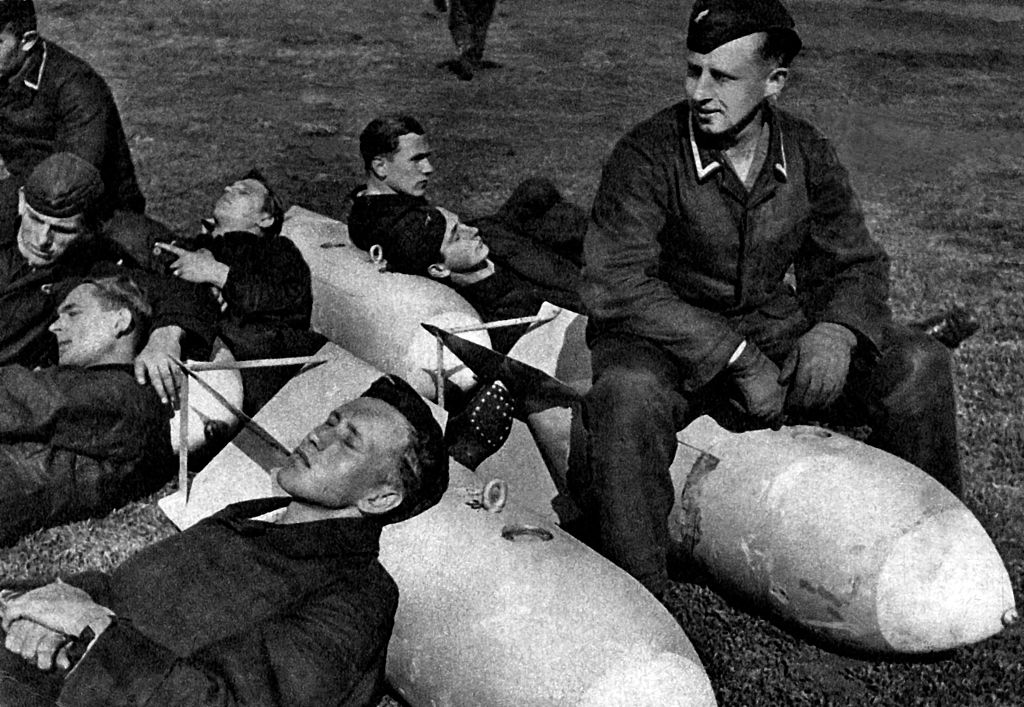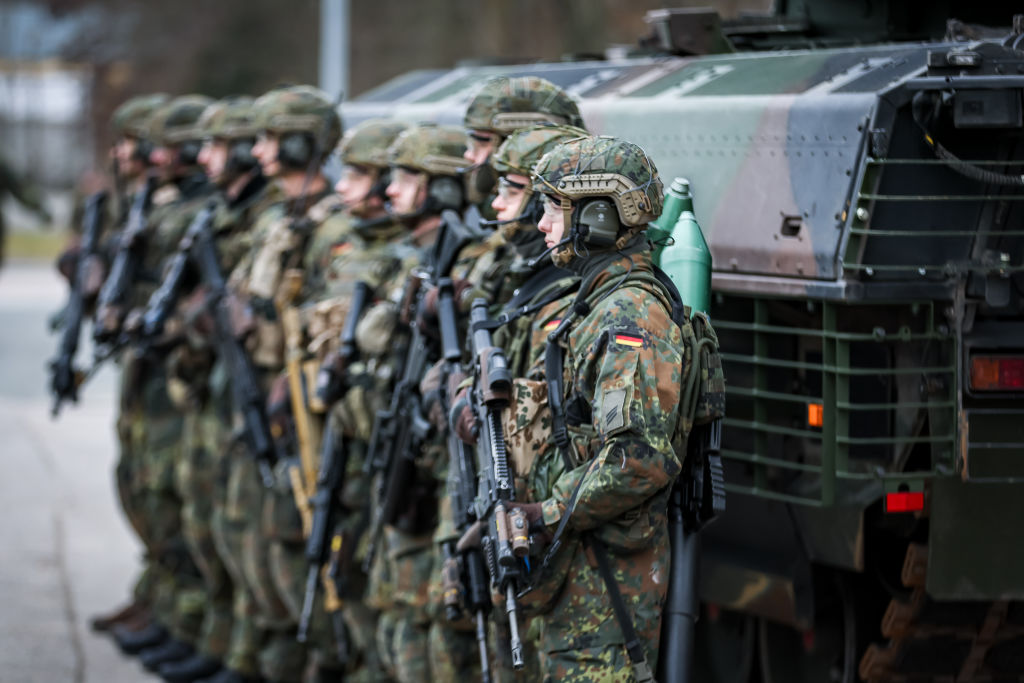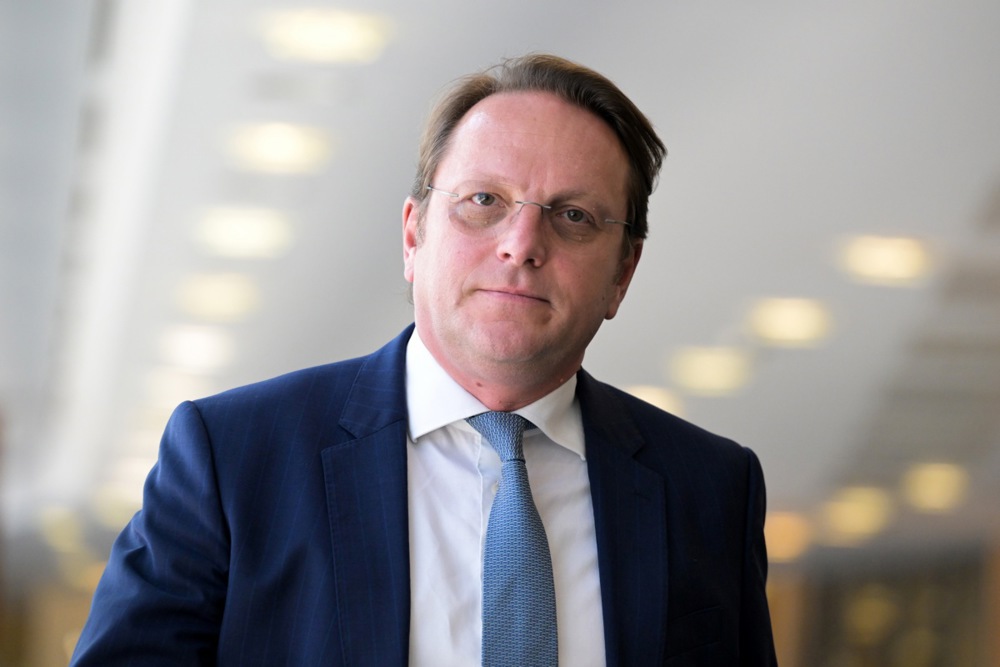Glory Be. Donald Tusk, the scourge of Brexit, the eurobully who turned a steady sneer into an acceptable expression of diplomatic protocol, seems to have turned on his masters in Brussels. Now Prime Minister of Poland, he has barred “refugees” from Belarus claiming asylum there, which violates the conjoined and brainless pieties that constitute EU policy towards “asylum seekers”. (And where would we be whenever discussing Brussels if barred from using inverted commas?) These people are mostly neither refugees nor asylum seekers, but simply a demographic weaponry intended to disrupt the host country.
“I will demand this,” insists Tusk. “I will demand recognition in Europe for this decision.”
This is like reading that the Catholic Church is to instal condom-dispensers in its confessionals. Can Tusk, the arch-zealot of euroconformism, be finally discovering that he, before all else, is a Pole? That he might even have common ground with his Hungarian equivalent, Viktor Orbán, whose very name is enough to send Brussels bureaucrats into irrational transports of acidulous wrath?
Though Tusk is of Poland, he does not (until last week anyway) seem to have convincingly represented the doughty independence of the Polish people. Few memorials anywhere strike so deeply into the visitor’s soul as that in Warsaw which honours of the Smolensk catastrophe of 2010, when an airliner carrying the Polish President, Lech Kaczynski, and 18 members of parliament, crashed and all 96 people aboard were killed. The victims were on their way to a service to commemorate the massacre in 1940 by the Soviet secret police, the NKVD, of some 22,000 Polish Army officers. These were of different ethnic backgrounds – some were Ukrainian, and around nine hundred were Jewish, while all serving their Polish homeland. The murder-warrants were signed by six similarly diverse senior Soviet officers – one Ukrainian, one Armenian, one Jewish and three Russian.
Understandably, a great many conspiracy theories have emerged from the Smolensk air-crash. Why would Putin, an ardent and unapologetic Russian nationalist and himself a serial murderer, not wish harm on those Poles who sought to commemorate their murdered dead? Yet the evidence suggests that he was not behind the Smolensk crash, and that it was caused by bad decision-making in appalling weather within a still-unprofessional post-communist Polish air force. Nonetheless, such tragedy heaped on such tragedy makes the Smolensk Memorial, which I recently visited, with its candles flickering wanly in the autumn breeze as two armed guards stood rigidly to attention in a perpetual vigil, a deeply moving and unforgettable monument.
Eighty years ago this November, the Nazis completed the destruction of what remained of Warsaw after the famous Rising of the Polish Home Army by dynamiting the walls of the Archcathedral of St John. This was done simply to punish the people of Poland and to exterminate the last vestiges of Polishness. But as time and a tortured history have repeatedly shown, Polishness is as ineradicable as the waters of the Vistula.
The collapse of communism in 1989, foreshadowed by Poland’s Solidarity Movement, allowed the shoots of freedom to take root in Polish political soil. When outsiders declare an understanding of any country’s political culture, it simply means that they have probably been misinformed, and Poland’s political culture is no exception. I do not pretend to understand Polish politics, but I merely report that Donald Tusk has managed to assemble a coalition government opposed to the Law and Justice Party that is led by Jaroslaw Kaczynski the identical twin-brother of President Lech Kaczynski, killed at Smolensk. That the two brothers were dedicated to the concept of preserving Poland’s very particular identity rings sympathetic bells with any sceptic of Brussels’ ambition for a single unifying (and largely fictitious) European identity, not least because the EU has constitutionally (and idiotically) denied that Christianity had any role in creating Europe.
What helps defines Polishness is of course its address: sandwiched between Russia and Prussia, two historically aggressive empires, with a third and more culturally benign empire, the Hapsburgs, nibbling some of tasty filling that was squeezed southward from between those armour-plated slices of rye bread. Modern Poland knows that Russia, its endless eastern nemesis, is now a greater threat to it than ever since the collapse of communism. Uniquely in Europe, Poland is arming to prevent Putin doing a Ukraine on it, ordering 650 155mm howitzers, next-generation air-supremacy fighters and ground-attack aircraft from South Korea, simply because European sources cannot supply them. Even as Western Europe collapses before the suicidal heresies of multiculturalism, Poland remains wedded to the entirely sensible concept of a recognisably Polish Poland.
The Polish economy today is seven-times larger than it was in 1990, the most vigorous growth within the EU and one of the largest in the world. One reason for this was Poland’s refusal to join the euro, which became a death-certificate scrip for much of southern Europe, Greece and Spain especially. By keeping the much-beloved złoty, the Poles retained their ability to control their own finances rather than being a fiscal serf of the European Central Bank in Frankfurt. Polish exports increased during the economic collapse of 2007-8, simply because the value of the unsupported złoty had fallen. Naturally, Brussels resents the Poles’ impudent disrespect for its great imperial monetary statement, the euro, and notionally Poland is “committed” one day to accept it as its own currency. But that would require a referendum or the approval of two thirds of Poland’s parliament, the Sejm, and even the (hitherto) ardent Europhile Tusk of the Civic Platform party seems reluctant to face that challenge.
There is one central characteristic of the Poles: they are immensely likeable. They expect the world to be a grim place, which it has consistently been for them for centuries, but they keep on being Polish, in the fond hope that their hour in the sunshine is surely due. Breakfast-time in a Polish hotel is an occasion of joyous chatter and happy babble, with a lot of laughter, widely-shared. Their neighbours in Ukraine – with whom they share a great deal in common, including a deep and traditional mutual-distrust – are close to losing their war for survival. Since nobody knows what Putin’s war-aims are – other than probably a conquest and forcible assimilation of Ukraine by imperial Russia – Poland has every right to fear the future.
That takes us to another beguiling Polish characteristic. Many intellectuals in Poland are both profoundly patriotic and Catholic, unlike their secular peers in western Europe and the Anglosphere. One of them recently observed to me, “We know what Brussels means by a united Europe. Not a threat to an outside enemy, but emphatically a real threat to internal dissent.”
Once again, Europe has a popularly-unelected President, Ursula von der Leyen, who won the support of 57 per cent of MEPs, who were themselves elected from a turnout of just 51 per cent of Europe’s electorate. In other words, she was made President of the European Commission by MEPs representing just 29 per cent of the population of the EU. North Korea could probably manage better figures than that, and Russia already has, Vladimir Putin having won 88 per cent of the popular vote earlier this year.
Does the Russian president genuinely regret the massacres of Polish POWs at Katyn and in various Soviet jails? Probably not. In fact, he most likely regards Katyn as an important lesson-of-statecraft for the successful management of any Muscovite empire. He has been all-powerful in Russia throughout this century, retaining a hold on of the old German city of Konigsberg, now known as Kaliningrad. Soviet forces conquered it in 1945, and having murdered or expelled its entire German population, duly incorporated it into Russia, Stalin renaming it in honour of the then President of the Soviet Union, Mikhail Ivanovich Kalinin.
This provides a vital insight into the poisons of Putinism. For Kalinin was one of the six signatories authorising the Katyn slaughters, making him a war-criminal of truly gigantic proportions. By retaining the name of this monster to represent the westernmost outpost of the Russian Federation, Putin is implicitly declaring that he has no regrets about Katyn. So understandably, the Polish people are preparing for the imminent arrival of Russia’s T-14 Armata main battle-tanks upon the Vistula’s shores.
Of course, following Putin’s population cattle-drive from Belarus, Brussels has tut-tutted disapprovingly over Poland’s refusal to accept these “migrants”, yet with possibly unexpectedly rewarding results. That would be if Tusk finally woke up, smelt the coffee of war and finally realised that he is a Pole, not a landless citizen of a mesmerising mist inside a pious vapour wrapped in a legal miasma, namely the EU. And why not? Has not the Kremlin been giving us all a vital military, political and empirical lesson for nearly three years? Europe can survive only if its component states proudly yet cooperatively reassert their national identity. On the other hand, existential doom probably awaits those who kowtow to the unarmed and unprincipled sanctimony of the multicultural, lickspittle-nomenklatura that run the Brussels bureaucracy. Poland’s way should be everybody’s way.





Big apes, but not small humans, come under protection of Spanish law